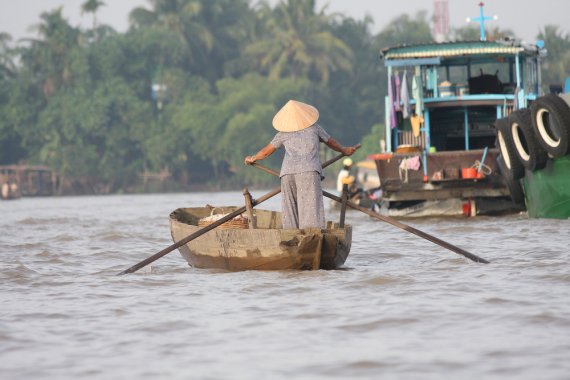According to the delta plan, which was written by a Dutch consortium five years ago, the dams in the Mekong Delta should not be raised but partly broken down to give the river room. This will decrease Vietnam’s rice production. Secondly, Vietnam should restore its mangrove forests to improve the natural coastal defence against the rising sea level. Thirdly, Vietnam should accept the salinisation in the coastal region. This will hamper the successful Vietnamese aquaculture. The rice and tilapia growers should change their business to quality food and eco-products for the growing Vietnamese middle class.
The big question is how the Vietnamese government, which is used to deliver top-down policies, will organise this transition. The policymakers in the field of infrastructure (the dam builders), agriculture and environment have to integrate their objectives on a regional level. Last December, provincial civil servants in the Mekong Delta played the game Good Shrimp Farming, that was developed by WUR and Can Tho University. This game aims to raise players’ awareness of the options and dilemma’s in developing a sustainable delta.

 Photo: Shutterstock
Photo: Shutterstock